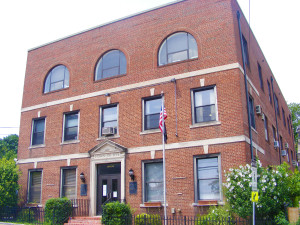The 2004 property reassessment was supposed to bring Rye Town one step closer to tax equity, curbing the amount of tax grievances and limiting expensive court battles over commercial back taxes.
Things don”™t always go as planned.
The town has received an average of 220 commercial property complaints since the reassessment, with 247 in 2011 and 223 in 2012. During that time, $2.4 billion in commercial value has been challenged and since 2009 Rye has paid $1.1 million settling commercial tax court cases.
With the number of grievances and court proceedings on the rise, Rye Town officials are playing hardball with commercial property owners contesting assessments. As part of a new law, any commercial property owner contesting a tax bill had until Aug. 23 to provide Rye with paperwork documenting the property”™s income and expense data or face a 3 percent penalty. That means a property assessed at $1 million would pay a $30,000 fine.
Required documentation isn”™t unique, but the hefty fine is unheard of in the area, to the point where several attorneys or property consultants questioned if it is even legal for the town to impose such a fine.
Town Supervisor Joseph Carvin, a Republican, said the law was meant to be an attention grabber. The penalty itself could cost as much as an entire year”™s tax bill.
“They get to pay their taxes twice,” he said. “A lot of people don”™t want to rock the boat, we want to rock the boat because the boat isn”™t working.”

Prior to the law, about 20 percent of owners filing with the board shared income and expense data.
Carvin said fighting taxes have become a “racket for lawyers,” who would rather see a complaint grow into a court proceeding. In Rye, which is assessed at 100 percent of market value, the town”™s five-person Board of Assessment and Review gets complaints seeking unreasonably large reductions, according to Carvin. “Not a single residential property has the chutzpah to come in at 10 percent of value,” he said.
When the two parties are that far away from a middle ground, the likelihood is court and that means the town pays attorney fees and hires an outside appraiser even in cases in which the end result is a settlement. The municipality can also be on the hook for interest if it loses a case.
In Rye, the percentage of commercial complaints that become court cases has risen dramatically from 76 percent in 2004 and 35 percent in 2005 to more than 80 percent for four straight years. The percentage of all commercial filings that ended up in court was 87 percent in 2009, 80 percent in 2010 and 92 percent in 2011, which is the last year numbers from the town were available.
On average, commercial properties contesting their assessments claim 25 percent of assessed value. In 2011, the average case filed with the town sought 27 percent of current value and in 2010 it was 26 percent.
The victims of what Carvin feels is a broken process include the school districts, whose taxes make up 60 percent of an average tax bill in Westchester County, he said.
“Far too many private enterprises are gaming the system and the system is stacked against municipalities,” he said. “Effectively they are trying to steal money from schoolchildren and that”™s unconscionable.”
It is increasingly common for politicians and critics to call Westchester a county in the midst of an assessment crisis. Most towns and cities in the county haven”™t been reassessed for 35 years due to its cost and obvious political ramifications. Up-to-date assessments may mean more equitable tax rolls and could result in decreased bills for some property owners, but it would also certainly mean increases for many, including residential homeowners who politicians fear may exact revenge for heavier tax bills in the voting booth.
Early last decade, the word “certiorari” became a household term in the county, as large commercial properties started to contest their valuations en masse. Settlements meant millions in back taxes paid to property owners by municipalities and school districts. It also meant a reduced tax roll for communities, which further increased the need for annual property tax hikes. The tax rolls have been likened to a pizza pie. As the size of one slice is reduced, the remaining slices must be increased to make the pie whole again. Due to fluctuating assessments, communities and schools have had to increase their tax levies just to stay flat year to year.

When Rye Town undertook a reassessment in 2004, it was one of only three towns in Westchester that had reassessed since the 1970s. It has kept its tax rolls updated on a biannual basis ever since. The town”™s assessed value has been on a steady decline since its high-water mark of $7.8 billion in 2007 as the local real estate market was deflating and the economy was headed for even more rough waters. Total value was $6.8 billion in 2010, $6.4 billion in 2011 and $6.14 billion last year.
As assessments have plummeted, the tax levy has grown from $133.4 million in 2004 to $176.7 million in 2011.
Assessment crisis or not, some view the financial penalty for not sharing documentation as excessive or at least unnecessary. Scarsdale-based property tax consultant Richard O”™Donnell said if a filer doesn”™t share documents, then there is really no case for their taxes to be reduced.
“I think the problem is solved if someone willfully fails to comply with the Board of Assessment Review”™s request for pertinent data,” O”™Donnell said. “What more of a penalty could you ask for?”
O”™Donnell said there were some “mass mailer groups” who burden a municipality with a slew of grievances just to see what sticks. But, in his own practice, he said he only takes on cases that he views as having merit and that could mean rejecting as many as nine out of 10 potential customers. He said that there are many factors at play in determining assessments, noting that out of 12,000 cases he has represented only one was in Pelham. All property owners have a right to seek equitable taxation, he said.
“It”™s absolutely impossible to eliminate outliers,” he said. “There”™s no such thing as perfection.”
Stephen Davis, an attorney with McCarthy and Fingar L.L.P. in White Plains, said he wasn”™t surprised by the uptick after reassessment in Rye. The new values might call attention to the rolls from owners who had never really looked at the process before, he said, and predicted over the years the number of filings should come down. He viewed the fine as a “strong arm tactic” and said that with the out-of-whack assessments throughout the county, most tax attorneys don”™t need to file grievances where a case lacks merit.
“There”™s plenty of business around and you don”™t have to generate it,” he said. “There are plenty of good cases.”
Carvin, the town supervisor, said the new law shouldn”™t put out those with legitimate cases and grievances. “We didn”™t want to penalize the good actors,” he said, “we wanted to go squarely after the bad actors. The most egregious will go on our ”˜Wall of Shame.”™”



















